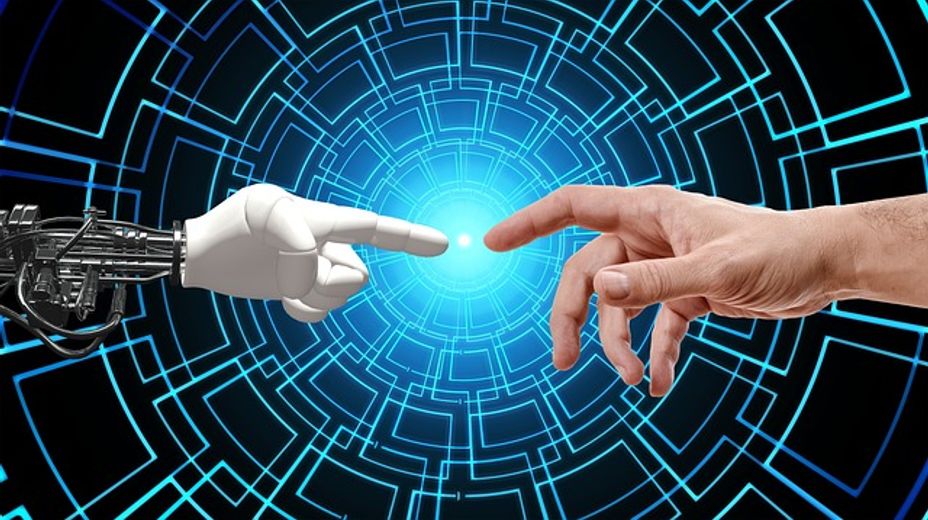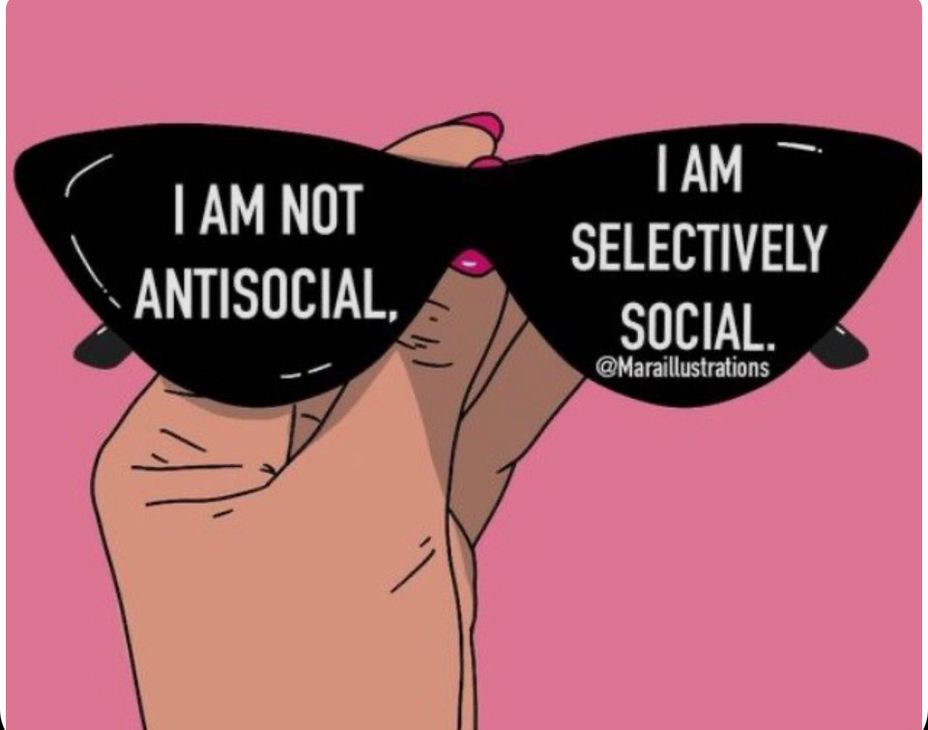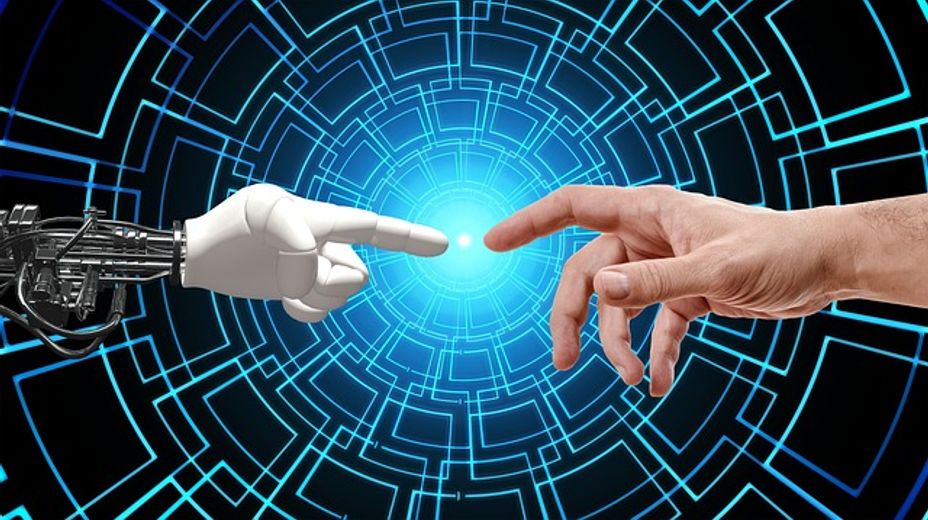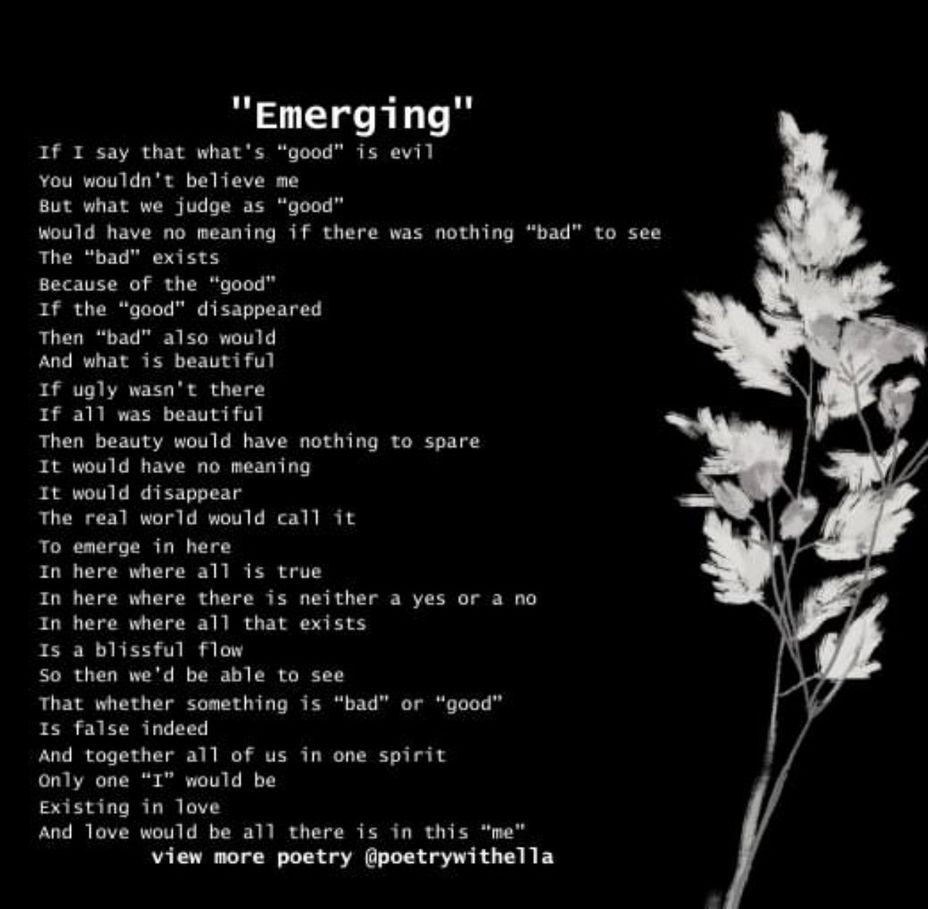Hello, I'm new here
Well... I have some questions about antisocial personality disorder. I believe that the best answer to such questions is yourself, but... yeah, there are some questions
Well... I have some questions about antisocial personality disorder. I believe that the best answer to such questions is yourself, but... yeah, there are some questions
I’ve recently been through a situation where I was targeted by a group of entitled jerks who see themselves as superior to regular people. This group believes their high IQs put them above all others and it has created a real elitist attitude amongst them that when combined with some of the ever-escalating actions they take, equals a growing threat to people. No man is safe. They specifically target men.
In my circumstance one of them had their ego bruised by me and like a good malignant narcissist does, she twisted reality into seeing me as the villain. She and her friends attacked my reputation and my life relentlessly for a year and a half, ultimately leading to them escalating things and doing criminal actions. Altogether it spanned about 4 years that I was affected.
This is a band of rich women, and who have Antisocial Personality Disorder who target men who they think they can get leverage on to blackmail them. This particular group seems to believe that if you are a man then you are the problem 100% of the time. They therefore take no issue with doing horrible things to you if you get selected as their target.
They make a game out of it with the ultimate objective of destroying your life and leaving you broke, alone, without friends, and without hope. They put bounties on big-ticket items like scamming you out of your home, your car, your money, and your items. It’s a competition that they run between them all trying to get as much from you as they can while leaving no trace or ideally leaving you clueless as to what happened.
Ultimately, the crown jewel of endings is if they can convince you to kill yourself or if they can convince you to lash out in some way that gets you convicted and put in jail for your own actions. The goal is to be untraceable back to them and they practice this daily on the people that they target. They will pretend to be your friend while forever sapping your self-esteem and self-worth driving you eventually towards depression and suicide by sabotaging your life and making it seem like the things going wrong are your fault.
_________________________________________________________
Gangstalking I can tell you is indeed a real thing. It starts with pissing off someone who is very wealthy and has nothing better to do than to sit in their ego-bruised feelings brooding until they decide to start hurling that wealth towards you manifested in pain, agony, and life-destroying antics.
Once you are selected as one of the ‘lucky’ ones then you can count on having no boundaries, no privacy, no safety, and no peace of mind. You can count on being hacked and every piece of information you have about you will be copied, you can count on them getting into your emails and reading all of your text messages, and you can count on them putting covert surveillance equipment in your house so they can watch you. Their favorite is to use something from within your house and hide a camera in it because you never expect your things to be spying on you so you never think to look there for a camera.
What they will do is hire people locally to harass you in some way. One of them was a psychologist who had seen some of the darkest personalities you can think of, from their tenure, they learned some of the darkest tricks imaginable that can be used against people for manipulation and control. They had learned strategies on how to screw with your mind and use your fears against you to get you into a subservient state.
Half of gang stalking is about using the person’s fears against them. So, they will establish some routine that you recognize which to everyone else seems totally harmless.
For instance, when it was in full force for me I had car alarms and horns going off outside my house perpetually. Every day multiple times per day. This is in an area where you’d hear something like that happen once per month or maybe every couple weeks was suddenly happening 3 to 6 times per day. It was just to let me know that they were there and they were watching but the ongoing relentlessness of it created a sort of intense pressure on me that hasn’t gone away.
Once the horns were established then they didn’t have to do much work to harass me with them anymore. They just had to hit a button on a car alarm a few times per day but, it had an impression on me of forever being watched which gave me this feeling of anxious and ongoing pressure.
The dividend that their strategies pay is that in the aftermath every single time I hear a horn since that period I immediately have a thought that it is them, I then rationalize the likelihood is nil and say to myself, ‘No this is a coincidence’ but the initial response is always anxiety.
The perpetual effect that the honking has on a person thereafter is that the default response of anxiety is from an actual psychological theory called operant conditioning which is a psychological theory regarding training people to react to stimuli that is not normal. In the experiment, they trained dogs to uncontrollably drool when they heard a bell by making them associate bells with dinner.
This is where gangstalking derives its power and is attained through repetitive conditioning to elicit a fear response so that way when they are no longer present the stimuli will make you still feel as though they are. It's the terror that keeps on giving. They just have to train you to go into a state of anxiety and then your body will take over from there.
If you are a man and you’ve been targeted and blackmailed by these women in the past, touch base with me as I’d like to hear your story.
Everyone has someone in their life to whom they wants to say a lot of things, let it be about their romantic feelings, revenge statements, irritating thoughts, current life situation etc. And circumstances don't let them do that and clearly let it out.
Therefore I am giving you this opportunity to say it to them and treat the comment section as the place to tell them everything you want to tell. Just let it out folks. Let it be unanimous followed by no judgements.
You can start by:
Dear XYZ,
I want to let you know that.......
So, I am making a power point for my Health class. It's about Mental Illnesses. We are going to teach the class about it. I got DID, ASPD, and Phobias. Which made me think about adding stories told by people with the diagnoses. I was wondering if anyone would feel comfortable sharing. I can always not include name/usernames, I just thought it would be more informative with real experiences then just what websites have to say.
(I will only being sharing with my class, a small group of normally only 10 people)
#AntisocialPersonalityDisorder #DissociativeIdentityDisorder #phobias

...And it shouldn't be.
In a world where some people would be happy to see everything operated by a computer, it is a reality that not everything can, or even should be.
I've seen a number of stories in the past couple of years about the attempts to create AI therapists. There was even a story discussing an unethical situation that involved a company pairing people with AI therapists, without their knowledge, in order to test their model. The result of this was that, within a few months, everyone paired with an AI therapist ended up leaving their "therapy", purely sensing that something was off about the interactions they were having with, as it turns out, a computer program and not a person.
While there are a whole host of problems with the idea of AI providing therapy, one that will not be able to be overcome is the issue of empathy.
Why is empathy such a deal-breaker?
Empathy arguably plays one of the most important (if not, the most important) role in how people connect. And when I say empathy, I'm not simply referring to empathic comments, such as, "It sounds like you've had a stressful day." One can make empathic comments without them actually coming from a place of empathy. And one can also relay empathy without having to make empathic-sounding comments.
Actual empathy comes from a deeper, often unconscious place within ourselves that can only be experienced between two people, whether or not words are even spoken. This is an important piece -- words are not needed to relay empathy.
Empty Words
Words, without the underlying empathic sentiment, are generally experienced by the other as empty, or void of emotion, and usually will not be able to be taken in or land appropriately, if at all. Imagine a moment in your life where someone has made an empathic sounding comment, but that you felt within yourself was not actually connected to the real emotion, or felt misaligned. In these moments, it can feel uncomfortable, dissonant, or even like you're being manipulated. The feeling is off, it's not a good feeling, it makes people squirm and want to turn away.
While words are, of course, important to some degree, it is the underlying empathy that lays the foundation for the words to land. Empathic communication is often unconscious and unspoken, not only in therapy but also between people in life. Underlying (unspoken) empathy is instrumental in how we hear, how we take in, how we sit with, and how we form a genuine connection with another person.
Empathy is a human phenomenon
With this in mind, it is just not possible for a computer program to relay empathy. Empathy is a phenomenon that is created between two humans interacting in a shared space together. This happens whether in-person or virtually. As long as there are two people interacting in real time, empathy has room to exist. (However, it does not work the same with text or email, which is why people often misinterpret the tone of written communication. The other isn't there to detect the underlying emotion and they end up projecting their own experiences in these moments.).
If you are interacting with another person, some sort of underlying empathy or regard is at play, even if you don't always consciously acknowledge or tune into it. Even if there are no spoken words. If you are attempting to interact with AI and no words are spoken, there is nothing.
Even if AI were to speak to you and use empathic-sounding recordings of human voices, it still cannot create and relay empathy. Why? Because even an empathic human voice recording wouldn't be connecting with you in your subjective space. It cannot create a deeper, unspoken connection with where you are emotionally, mentally, or physiologically. The responses of a recording would be coming from a disconnected place (or it would be coming from a moment of connection with someone else when the recording was created), and that disconnect would be felt, even unconsciously. Even if it were possible to be "fooled" at first, this would erode as the inconsistencies in connectivity and lack of true emotion were to be experienced.
(I should also point out that it's utterly impossible for AI to provide therapy. A great deal of therapy is based on the experience of the shared space between the client and the therapist. AI can't truly have this experience).
Is AI "therapy" more harmful than good?
There is also a greater danger with AI "therapy" which one should consider. If you're attempting to create a connection to a computer program for an emotionally-based experience, there are potentially drastic consequences to your mental health being set up. Empathy is the cornerstone of how one develops emotionally, from infancy and childhood and even through adulthood. This involves not only how your parents (or others) talk to you, but how they feel towards you. When there is little underlying empathy or attunement from parents or caretakers growing up, this opens up a range of potential mental health issues, from anxiety or depression to even more severe issues such as antisocial personality disorder (sociopathy), and others.
If you're engaging in a pseudo-therapy with an AI computer program, the result is more likely to distort (or even mute) your own empathy and your ability to connect with others, as well as to potentially disconnect you internally from yourself. Even with a therapist who speaks less often, there is always an underlying feeling, empathy, regard for you. This silent, yet still highly empathic communication is crucial to not only the developing child in the world from their parents, but also to any human experience, which includes the therapy experience. So even a less talkative therapist can still relay a great deal of empathy.
Finding genuine support
In the end, an AI "therapy" program can make pre-determined comments. It can sound supportive on the surface. It may offer a coping skill. But these are merely algorithmic responses to words, or even possibly a tone or other "markers" that sets off a pre-programmed response. But it cannot truly know or feel you, or understand or "get" you, or be able to have the vast experience of a seasoned therapist who can discern between what someone else may need in a moment, versus what you personally may need that differs in a very similar situation. While empathy is not the only piece to consider in why AI "therapy" should never happen, without the ability to truly have empathy the entire rug is pulled out from under a therapy -- or any relationship for that matter.

i just know it resonates with you too; confidence with a little bit of humour can really cheer you up #behappy

...And it shouldn't be.
In a world where some people would be happy to see everything operated by a computer, it is a reality that not everything can, or even should be.
I've seen a number of stories in the past couple of years about the attempts to create AI therapists. There was even a story discussing an unethical situation that involved a company pairing people with AI therapists, without their knowledge, in order to test their model. The result of this was that, within a few months, everyone paired with an AI therapist ended up leaving their "therapy", purely sensing that something was off about the interactions they were having with, as it turns out, a computer program and not a person.
While there are a whole host of problems with the idea of AI providing therapy, one that will not be able to be overcome is the issue of empathy.
Why is empathy such a deal-breaker?
Empathy arguably plays one of the most important (if not, the most important) role in how people connect. And when I say empathy, I'm not simply referring to empathic comments, such as, "It sounds like you've had a stressful day." One can make empathic comments without them actually coming from a place of empathy. And one can also relay empathy without having to make empathic-sounding comments.
Actual empathy comes from a deeper, often unconscious place within ourselves that can only be experienced between two people, whether or not words are even spoken. This is an important piece -- words are not needed to relay empathy.
Words, without the underlying empathic sentiment, are generally experienced by the other as empty, or void of emotion, and usually will not be able to be taken in or land appropriately, if at all. Imagine a moment in your life where someone has made an empathic sounding comment, but that you felt within yourself was not actually connected to the real emotion, or felt misaligned. In these moments, it can feel uncomfortable, dissonant, or even like you're being manipulated. The feeling is off, it's not a good feeling, it makes people squirm and want to turn away.
While words are, of course, important to some degree, it is the underlying empathy that lays the foundation for the words to land. Empathic communication is often unconscious and unspoken, not only in therapy but also between people in life. Underlying (unspoken) empathy is instrumental in how we hear, how we take in, how we sit with, and how we form a genuine connection with another person.
With this in mind, it is just not possible for a computer program to relay empathy. Empathy is a phenomenon that is created between two humans interacting in a shared space together. This happens whether in-person or virtually. As long as there are two people interacting in real time, empathy has room to exist. (However, it does not work the same with text or email, which is why people often misinterpret the tone of written communication. The other isn't there to detect the underlying emotion and they end up projecting their own experiences in these moments.).
If you are interacting with another person, some sort of underlying empathy or regard is at play, even if you don't always consciously acknowledge or tune into it. Even if there are no spoken words. If you are attempting to interact with AI and no words are spoken, there is nothing.
Even if AI were to speak to you and use empathic-sounding recordings of human voices, it still cannot create and relay empathy. Why? Because even an empathic human voice recording wouldn't be connecting with you in your subjective space. It cannot create a deeper, unspoken connection with where you are emotionally, mentally, or physiologically. The responses of a recording would be coming from a disconnected place (or it would be coming from a moment of connection with someone else when the recording was created), and that disconnect would be felt, even unconsciously. Even if it were possible to be "fooled" at first, this would erode as the inconsistencies in connectivity and lack of true emotion were to be experienced.
(I should also point out that it's utterly impossible for AI to provide therapy. A great deal of therapy is based on the experience of the shared space between the client and the therapist. AI can't truly have this experience).
Is AI "therapy" more harmful than good?
There is also a greater danger with AI "therapy" which one should consider. If you're attempting to create a connection to a computer program for an emotionally-based experience, there are potentially drastic consequences to your mental health being set up. Empathy is the cornerstone of how one develops emotionally, from infancy and childhood and even through adulthood. This involves not only how your parents (or others) talk to you, but how they feel towards you. When there is little underlying empathy or attunement from parents or caretakers growing up, this opens up a range of potential mental health issues, from anxiety or depression to even more severe issues such as antisocial personality disorder (sociopathy), and others.
If you're engaging in a pseudo-therapy with an AI computer program, the result is more likely to distort (or even mute) your own empathy and your ability to connect with others, as well as to potentially disconnect you internally from yourself. Even with a therapist who speaks less often, there is always an underlying feeling, empathy, regard for you. This silent, yet still highly empathic communication is crucial to not only the developing child in the world from their parents, but also to any human experience, which includes the therapy experience. So even a less talkative therapist can still relay a great deal of empathy.
In the end, an AI "therapy" program can make pre-determined comments. It can sound supportive on the surface. It may offer a coping skill. But these are merely algorithmic responses to words, or even possibly a tone or other "markers" that sets off a pre-programmed response. But it cannot truly know or feel you, or understand or "get" you, or be able to have the vast experience of a seasoned therapist who can discern between what someone else may need in a moment, versus what you personally may need that differs in a very similar situation. While empathy is not the only piece to consider in why AI "therapy" should never happen, without the ability to truly have empathy the entire rug is pulled out from under a therapy -- or any relationship for that matter.

Do you guys agree? #ADHD #AntisocialPersonalityDisorder #MightyPoets
I lost my daughter baby in 98 it’s like my mind went to sleep I don’t rember the things I did or said n now I’m waking up 23 yrs later still felling 17 and I have a 13 yr old it’s like my mind pressed pause but the world didn’t I can relate to a lot of actions from dpd to did to bortndlie personally disorder to ect but not all of each one just a few from each one I’m just trying to understand
Hi, my name is sparrow7. I'm here because
#MightyTogether #BorderlinePersonalityDisorder #ADHD #OCD #PTSD #EatingDisorder #AntisocialPersonalityDisorder #SchizotypalPersonalityDisorder #dissociativedisorders #DissociativeIdentityDisorder #Anxiety #Depression #BipolarDisorder